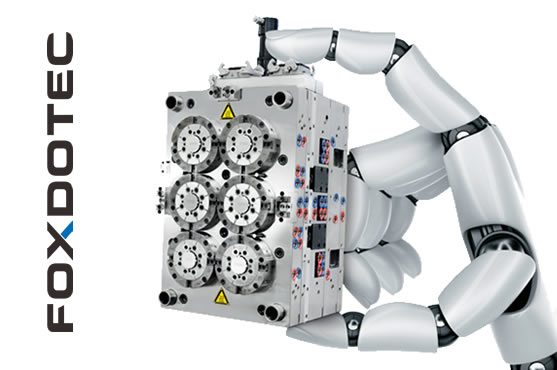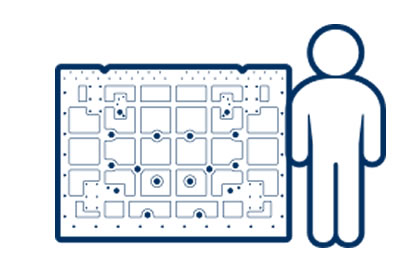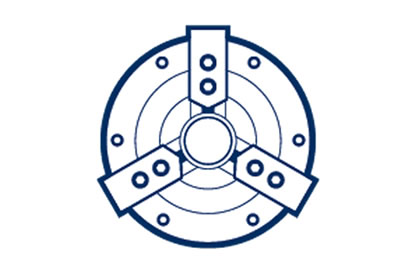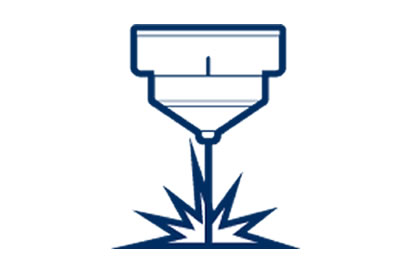Mold Manufacturing Service
Mold Manufacturing offers professional custom mold services. With advanced manufacturing equipment and an experienced team, we are dedicated to providing high-quality, customized mold solutions for our clients. Partner with us for satisfactory product quality and excellent customer service
Mold Manufacturing
What is Mold Manufacturing?
Mold Manufacturing is the process of creating molds, which are tools used to shape and form materials into specific shapes or designs. This process typically involves designing, prototyping, and manufacturing molds using various techniques such as CNC machining, injection molding, or 3D printing. Mold Manufacturing plays a crucial role in industries such as automotive, aerospace, consumer goods, and medical devices, where precise and customized parts are required.
Precision Injection Mold Manufacturing


What is the process of mold manufacturing?
Mold Manufacturing Process
- Design: Create a design for the mold using CAD software.
- Prototyping: Create a prototype to test functionality.
- Material Selection: Choose the appropriate material for the mold.
- Machining: Manufacture the mold using machining processes like milling or turning.
- Heat Treatment: Treat the mold to improve hardness and durability.
- Surface Finishing: Polish or treat the mold's surfaces for desired finish.
- Assembly: Assemble multiple components into a complete mold assembly.
- Testing and Validation: Test the mold for functionality and quality.
- Production: Use the mold in production to create parts.
- Maintenance: Regularly maintain the mold for longevity and performance.

CNC Machining
CNC machining is a computer-controlled manufacturing process that utilizes pre-programmed software to dictate the movement of machinery and tools. This technology enables the precise cutting, drilling, and shaping of materials such as metal, plastic, and wood to create intricate components with high accuracy and consistency.
Read More
Precision Grinding
Precision grinding is a manufacturing process that involves the removal of material using abrasives to achieve extremely tight tolerances and surface finishes. used to produce components with intricate shapes, precise dimensions, and smooth surfaces. Precision grinding techniques include cylindrical grinding, surface grinding, and internal grinding.
Read More
Electrical Discharge Machining
Electrical Discharge Machining (EDM) is a non-traditional machining process that utilizes electrical discharges to erode material from a workpiece. It is particularly useful for machining complex shapes and hardened materials that are difficult to machine with conventional methods. EDM can achieve high precision and surface quality.
Read MorePrecision machining and manufacturing involve the use of advanced techniques and equipment to produce highly accurate and intricate components with tight tolerances. It requires expertise in machining processes, material properties, and quality control methods to ensure the production of high-quality parts for various industries.
Key Aspects of Understanding Injection Molds
- Design Principles: Understand the principles of injection mold design, including considerations for part geometry, material flow, cooling, and ejection.
- Materials and Construction: Explore the materials commonly used in injection mold construction, such as tool steel, aluminum, and beryllium copper.
- Manufacturing Techniques: Gain insights into the manufacturing processes used to produce injection molds, including machining, EDM, and CNC milling.
- Mold Maintenance and Repair: Learn about the importance of mold maintenance and preventive maintenance schedules to ensure the longevity and performance of injection molds.
- Tooling Standards and Regulations: Familiarize yourself with industry standards and regulations related to injection mold design and manufacturing.
- Advanced Technologies: Stay informed about advancements in injection mold technology, such as rapid prototyping, additive manufacturing (3D printing), and simulation software.
- Cost Considerations: Gain insights into the cost factors associated with injection mold production and learn about strategies for cost optimization.
- Case Studies and Best Practices: Study real-world examples of successful injection mold projects across various industries.
Key Aspects of Understanding Precision Machining
- Processes and Techniques: Explore the various precision machining processes and techniques, including turning, milling, drilling, grinding, electrical discharge machining (EDM), and others.
- Materials: Learn about the different types of materials commonly machined using precision techniques, such as metals (e.g., aluminum, steel, titanium), plastics, ceramics, and composites.
- Tooling and Equipment: Familiarize yourself with the cutting tools, machine tools, and equipment used in precision machining.
- Tolerances and Metrology: Gain insights into tolerance requirements and metrology techniques used to measure and verify part dimensions and surface characteristics.
- Design for Manufacturing (DFM): Explore principles of design for manufacturability (DFM) and how they apply to precision machining.
- Quality Assurance: Understand quality control measures and inspection techniques used in precision machining.
- Applications and Industries: Explore the diverse applications of precision machining across industries such as aerospace, automotive, medical, electronics, and tooling.
- Advanced Technologies: Stay informed about advancements in precision machining technology, including automation, robotics, additive manufacturing (3D printing), and advanced materials.
Precision machining and mold technical documents
Other Downloads
- Technical Parameter 3.9 MB
- Technical Drawing 1.8 MB
